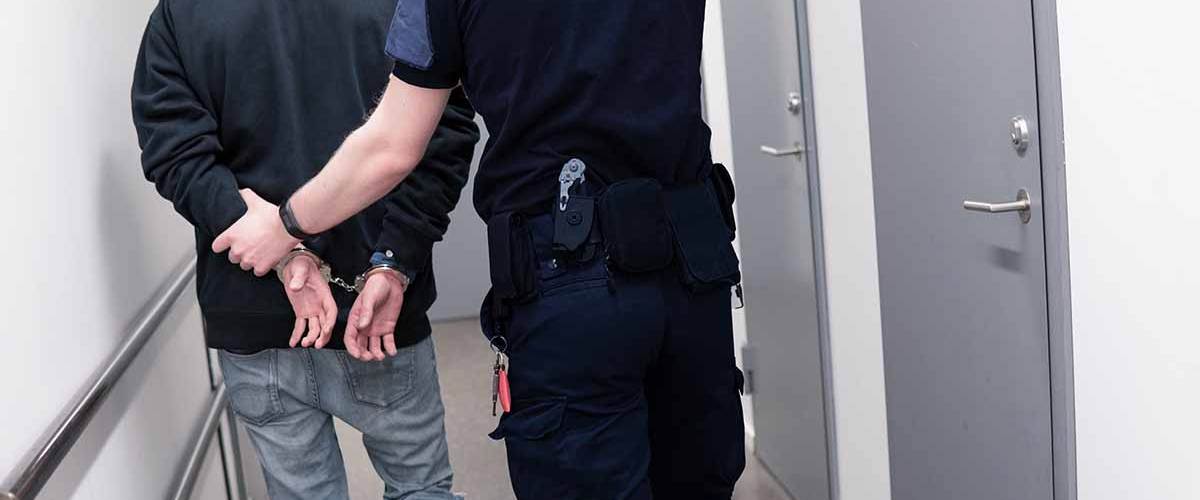Listen To This Page
What You Need to Know About ARS 13-3553
According to Arizona Revised Statute (ARS) 13-3553, it is illegal to sexually exploit a minor child or subject that child or any other child to child pornography, making it a Class 2 Felony in the state of Arizona.
But what does it exactly mean to exploit a minor child in Arizona?
In the state of Arizona, child exploitation, as it refers to child pornography, includes the act on the part of the perpetrator of knowingly and intentionally filming, photographing, or otherwise recording still images or moving pictures of any minor child.
You Have Rights and We’re Here to Help!
What Does Exploit a Minor Child Exactly Mean?
Overview of These Criminal Charges
In the state of Arizona, child exploitation, as it refers to child pornography, includes the act on the part of the perpetrator of knowingly and intentionally filming, photographing, or otherwise recording still images or moving pictures of any minor child.
When that child is of the age of 14 years or younger, the perpetrator may also be found guilty of something called DCAC, which stands for Dangerous Crimes Against Children, and it carries even more severe penalties than those associated with child exploitation on its own.
It’s important to note that you can also be found guilty of child exploitation if you were found to have duplicated or developed images of exploited children, purchased such pictures or videos for yourself or for resale, or conducted any electronic relationship with the child(ren).
For example, through texting, “sexting,” or transmitting any images of yourself to the exploited child, whether s/he asked for them or not. Or vice versa, request images or videos of a minor.
With all of this said, it is important to understand that not all of those who are charged with child exploitation in Arizona are guilty: of texting or sexting, using a wrong number when the content was intended for a spouse or boy/girlfriend, or friending someone on social media who appears much older than s/he is, and who then lies about his or her age are just two common situations in which some of our defendants have found themselves in with charges such as these.
Other Related Sex Crimes
In addition to these charges, other crimes may be brought up against you. These include:
-
- ARS 13-3554 – Luring a minor for sexual exploitation
- ARS 13-1403 – Public sexual indecency
- ARS 13-1404 – Sexual abuse charges
- ARS 13-1406 – Sexual assault charges
- ARS 13-3821 – Failure to register as a sex offender
Penalties and Sentencing for Child Exploitation (Child Pornography) in Arizona
Harsh Reality of the Penalties
Pursuant to Arizona Revised Statute (ARS) 13-3553 when images, video, or any other footage is found to be in possession of the alleged perpetrator, and the minor child in said images is of or under the age of 14; the alleged perpetrator faces sentencing that will include DCAC charges in addition to the punishments for child pornography cases in which the child was 15 years or older.
This means the sexual exploitation of a minor with the maximum penalty carries a longer, more extreme penalty than the maximum penalty for second-degree murder in Arizona.
Some examples of sentencing that include both regular exploitation and DCAC charges include:
-
- First-time offenders will face a minimum of 10 years in prison for each individual conviction of child exploitation and a maximum of 24 years in prison per conviction.
- Suppose the perpetrator has a single prior felony, either one that includes a DCAC offense or other dangerous offense. In that case, s/he will face between a minimum of 21 years and a maximum of 35 years in prison.
- Suppose the perpetrator has previously been convicted of 3 felony counts. In that case, s/he must serve his or her sentences separately (consecutively), such that if s/he were to have two counts of child exploitation, the first might be sentenced at 20 years, meaning the second charge would be sentenced at 40 years, and so on.
-
- Importantly, suppose a child exploitation charge also includes a DCAC charge. In that case, the sentence mandated by the judge must be served entirely before the defendant becomes eligible for release. For this reason, and a few obvious others, child exploitation and child pornography charges are often called “life enders” inside the system.
If the Victim is Between the Ages of 15 and 17, According to ARS 13-3553
In the state of Arizona, child exploitation charges can not be coupled with Dangerous Crimes Against Children (DCAC) laws. Nonetheless, the charges can still be rather stringent compared to many other states in the US.
Let’s take a closer look at some of the sentencing and penalties parameters:
-
- For those who are first-time offenders of this class 2 felony, the court may decide on leniency with a sentence of probation with 0 days to up to a single year in jail. In other instances, based on the circumstances surrounding the specific case, a judge may instead decide to sentence the minimum prison time of 3 years up to the maximum prison time of 12.5 years.
- For those with a single prior conviction on their record, the option for probation and/or jail disappears, and the minimum prison time is 4.5 years with a maximum of 23.25 years.
- Finally, for perpetrators found guilty of child exploitation of a child between the ages of 15 and 17 years and who also have two prior felony convictions, probation and/or jail time are taken off the table, replaced with a minimum of 10.5 years and a maximum of 35 years in prison.
You Will Have to Register as a Sex Offender if Found Guilty of Child Exploitation
It is essential to note that those convicted of child exploitation/child pornography will be forced to register as a sex offender in the state of Arizona as well as with the US Federal Government.
This allows the authorities to know your whereabouts at all times, and when you move, you must register once again with your new address, phone number, and any other applicable information. Failure to register as a sex offender can have some serious repercussions as well.
As an entity listed on the Sex Offender Registry, you must legally stay away from any children under the age of 18, and that includes your own children, should you have any, until they become the age of 18 when, through the help of the court, the two of you may petition to have the right to see one another again; but be aware, this is a long and arduous process that can take months and even years to complete.
You Need a Defense Lawyer Who Understands Sex Crimes Charges in Arizona
The Defense You Need for Serious Crimes
When individuals face accusations related to the possession of child pornography or engaging in the sexual exploitation of a minor, expert defense attorneys employ a range of strategic defenses to safeguard their client’s rights and ensure a just legal process. Below, we outline both common and uncommon expert defense strategies that can be applied in such cases:
-
- Entrapment Defense: This defense contends that the accused was coerced or induced by law enforcement officers or agents into committing the alleged offense. To substantiate the entrapment defense, it is essential to establish that the idea to commit the crime originated from law enforcement and that the accused would not have participated in such activities otherwise.
- Mistaken Identity: A skilled defense attorney may challenge the accuracy of identifying the accused as the individual involved in the alleged offense. Mistaken identity can arise due to factors such as poor lighting, distance, or unreliable eyewitness testimonies.
- Age Verification: If the accused had a reasonable belief that the individual they were communicating with was not a minor, the defense could assert that the accused took prudent steps to ensure they were not interacting with an underage individual.
- Ambiguous Communication: The defense might argue that the communication or messages in question were unclear or vague. If any references to sexual exploitation were not explicit or mutually agreed upon by the parties involved, this could serve as a defense strategy.
- Challenging Digital Evidence Authenticity: Given the prominence of digital communications in modern cases, the defense could cast doubt on the authenticity of online interactions. This involves questioning the accuracy or potential manipulation of electronic evidence.
- Mental Incapacity Defense: If the accused had a diminished mental capacity at the time of the alleged offense, the defense may argue that they were incapable of forming the required intent for the crime.
In addition to these strategies, other defenses include:
-
- Discrediting the Accuser: The defense may highlight inconsistencies in the accuser’s statements, investigate potential motives or biases, and explore the possibility of false allegations due to personal vendettas, familial conflicts, or misunderstandings.
- Evaluating Evidence Collection and Preservation: Scrutinizing how law enforcement handled evidence, evaluating the validity of forensic analyses, and seeking independent expert opinions when necessary.
- Assessing Police Conduct Legality: The defense can examine whether law enforcement adhered to proper procedures during the investigation. This involves challenging any violations of constitutional rights, such as unlawful searches or coerced confessions, and seeking the suppression of evidence obtained through such means.
- Expert Witness Utilization: Involving medical, psychological, or forensic experts to provide unbiased assessments and testimony. These expert insights can be used to challenge the prosecution’s claims or reinforce the defense’s position.
- Exploring Plea Options: Evaluating the feasibility of negotiating a plea to a reduced charge or more favorable terms. This decision involves careful consideration of the evidence’s strength and potential trial outcomes.
Be Prepared for What Could Be Coming Next
In some instances, the prosecution will go to extraordinary lengths to obtain search warrants of your home, car, or in some instances, even your office.
Once they have gained access to these places, and have a valid search warrant, they can search your home and personal property for alleged evidence, seize any electronic device where you may have downloaded any incriminating content, view communications with an alleged minor, even clone your hard drive before returning it to you in an effort to avoid being accused of having meddled with your device(s).
Timing is Critical - Start You Defense Today
At the Law Office of Daniel Hutto, we more than understand the fear, stress, shame, and anguish you and your family may be going through as you face these exceptionally egregious charges.
But we’re here to tell you: child exploitation cases in Arizona are winnable! Forget all about the potential damage to your good name and what could happen to your career, and instead, focus on protecting your rights.
With the Law Office of Danial Hutto on your side, you’ll have a Phoenix sex crimes defense attorney who understands every aspect of the statute these laws were built on, making us best equipped to handle cases just like yours — which we have successfully done dozens of times!
Give us a call for your completely free legal consultation right now: we’ll connect you with an experienced Arizona criminal defense attorney who understands your needs exactly, who can listen to what you have to say and answer any questions you may have. Dial 602.536-7878 today.






